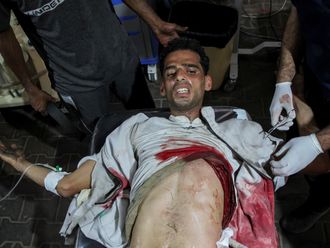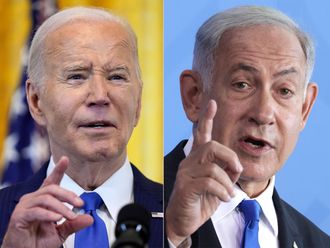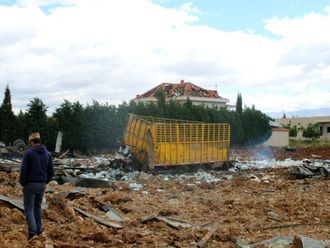Ankara: New CIA chief Mike Pompeo arrived in Ankara on Thursday for talks with Turkish officials, on his first foreign visit since the inauguration of US President Donald Trump.
His visit came two days after President Recep Tayyip Erdogan spoke to Trump for the first time in his White House term, agreeing to work together in the fight against Daesh in Syria.
Pompeo is likely to discuss the status of US-based Islamic preacher Fethullah Gulen whom Ankara blames for July’s failed coup against Erdogan. Gulen denies the charges.
Turkey has repeatedly asked the US to extradite Gulen, who has been living in self-imposed exile there since 1999. But the Obama administration said a possibly slow legal process should take its course.
He is due to meet Erdogan and Turkish spy agency chief Hakan Fidan, NTV television reported, after the two presidents on Tuesday held their first phone call since Trump took office last month.
Pompeo is also to discuss the Syria conflict, in particular Turkey’s operation against Daesh in the town of Al Bab and a possible plan to capture the group’s de-facto capital Raqa, NTV said.
Erdogan’s spokesman Ebrahim Kalin said on Wednesday that discussions were ongoing with the US over efforts to retake Raqa from Daesh, with Trump giving a “positive” response to Turkish plans.
On the same day, Turkish Foreign Minister Mevlut Cavusoglu raised the prospect of Turkish special forces’ involvement in any Raqa operation after recapturing Al Bab.
According to Hurriyet daily’s well-connected columnist Abdulkadir Selvi, when Erdogan raised the issue of the fight against Daesh and the Syrian Kurdish militia, Trump said: “I am sending the CIA chief, you can speak with him in detail.”
Turkey is hoping for better relations with the new US administration, after the relationship with Barack Obama was marked by disappointment and anger.
The NATO allies have seen relations strained over Washington’s support for Syrian Kurdish militia, whom Washington views as the most effective fighting force against Daesh.
But Ankara sees the Kurdish Democratic Union Party (PYD) and its armed wing, the Kurdish Peoples’ Protection Units (YPG), as terror groups linked to the outlawed Kurdistan Workers’ Party (PKK).












